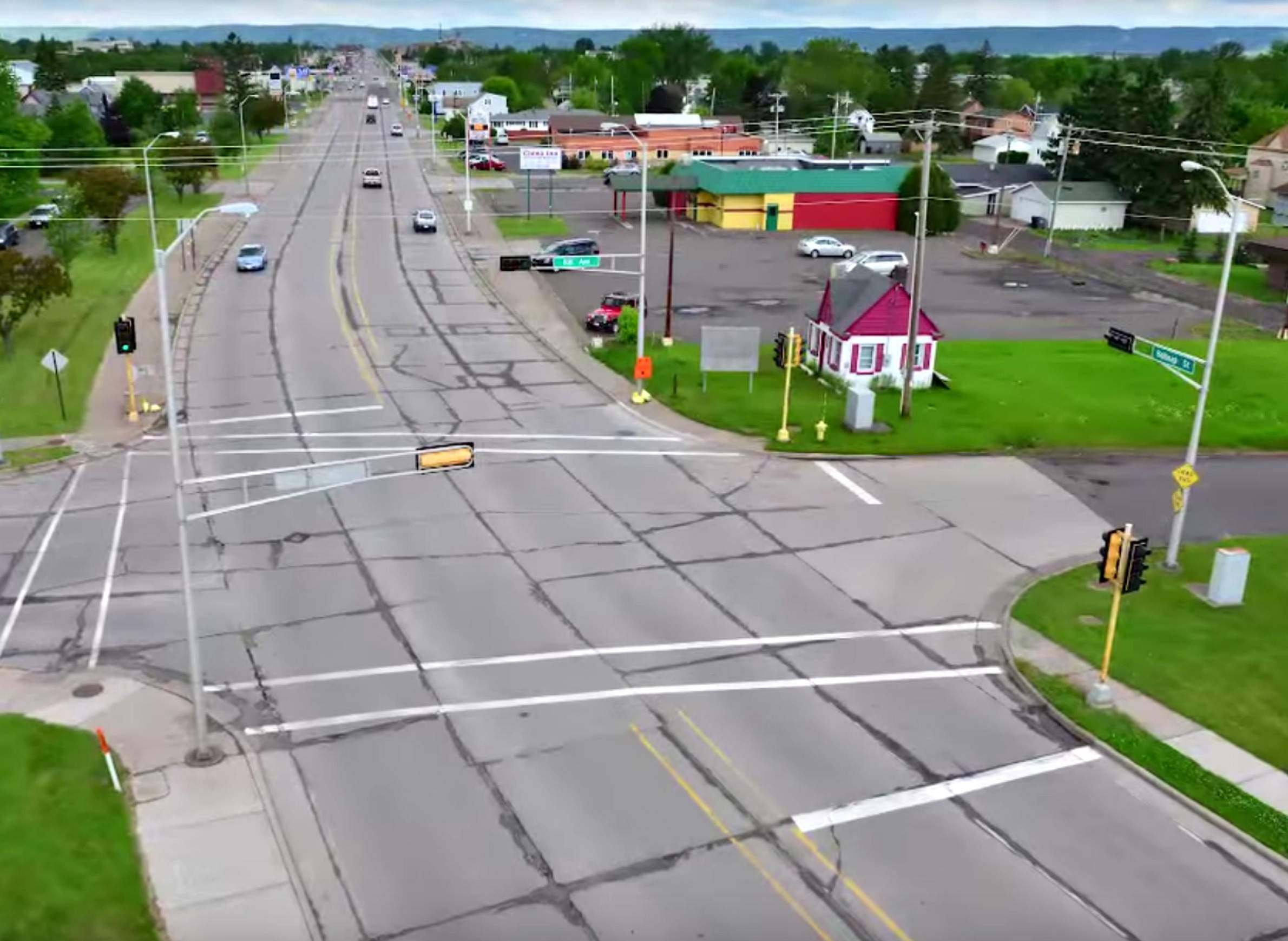
A portion of U.S. Hwy. 2/Belknap Street in Superior is scheduled for reconstruction

A portion of U.S. Hwy. 2/Belknap Street in Superior is scheduled for reconstruction
Some Wisconsin cities are trying to find ways to maintain the same level of services in light of levy limits and rising costs.
Superior has a balanced budget for 2017 at roughly $29 million, but costs increased by more than $600,000 from this year's budget. Superior Interim Mayor Bruce Hagen said they're planning to use revenues from a tax on Enbridge Energy's oil pipeline terminal for the general fund in 2018.
"The oil pipeline terminal tax is a major factor with regard to us being able to move along without reductions, eliminations and so forth," he said.
The city has seen costs rise about $500,000 to $600,000 each year due mostly to inflation. Hagen said they plan to use around $400,000 from oil tax revenues in 2018, which are typically reserved for capital improvement projects like the city's upcoming Belknap Street reconstruction.
Marshfield City Administrator Steve Barg said they asked voters to increase property taxes in August this year to pay for roads.
"Of course, levy limits that have been imposed on us from the state keep us from raising much more money from ourselves. We're looking at anything creative we can," Barg said.
The city had hoped to find about $6.8 million through increasing property taxes over the next five years to help pay for major street repairs. Barg said around 64 percent of residents in the city of just under 20,000 voted against the increase during the August referendum.
"Some people are struggling obviously to make it through and increasing your taxes on yourself for five years, even if you see value, is a tough one to sell," he said.
The state limits local governments from raising property taxes beyond what revenues they bring in from new construction to alleviate the tax burden on residents. But, Curt Witynski, assistant director with the Wisconsin League of Municipalities, said cities have been stretched thin by levy limits and cuts to shared revenues and transportation aids.
He said about 30 communities have passed referenda asking voters to increase property taxes since 2005 with more interest in going to voters to exceed revenue limits in recent years.
"We're seeing some uptick in that and anticipate it'll happen more as communities reach the wall of being under levy limits sort of unable to bring in more property tax revenue, but seeing a demand for a continuation of services at a certain level," Witynski said.
In 2014, Janesville went to voters asking them for an additional $1.2 million each year in property taxes from 2015 to 2019 to repair streets. City Manager Mark Freitag said 67 percent of residents voted against higher taxes.
"We knew that the community at the time that was the big complaint was our roads are terrible in Janesville, but they just didn’t want to see their property taxes go up by increasing the operating levy," Freitag said.
Instead, the Janesville City Council voted to increase the city's wheel tax from $10 to $20 and borrow the rest to fund road repairs, Freitag said. Since then, the city went from repairing six miles of road in 2013 to 12 miles this year. But, he said they're very mindful of managing the debt the city is carrying.
"More and more things are being shifted to debt because [municipalities] just can't cover them with our operating budgets," Freitag said.
Marshfield has looked to bonding or borrowing to inch forward on road repairs. But, Barg said they can't borrow more than $3 million each year without the city's debt load increasing.
The city may consider looking at special assessments in a new way or going back to voters to ask for a lesser increase in property taxes. Janesville's city council is unlikely to go to voters again. Freitag said there are other options like allowing cities to implement a sales tax or raise levy limits in accordance with inflation and what they bring in from new construction.
In Superior, Hagen said they're trying to bring in revenues through growth in light of stagnant state support. Jean Vito, finance director for Superior, said shared revenues for the city remain at the same funding level they were 20 years ago at just under $8 million.
"When we don’t get the inflationary increases in this revenue source, it puts the pressure on our levy," Vito said. "But, if you have levy limits, then you can't go to your levy to make that up."
If growth remains flat, Hagen said freezes on revenue sources will catch up with the city.
"We'd have to make a very difficult decision as to what services would be provided at what level," he said. "Which goes back to the ability to pay for them."
Wisconsin Public Radio, © Copyright 2023, Board of Regents of the University of Wisconsin System and Wisconsin Educational Communications Board.